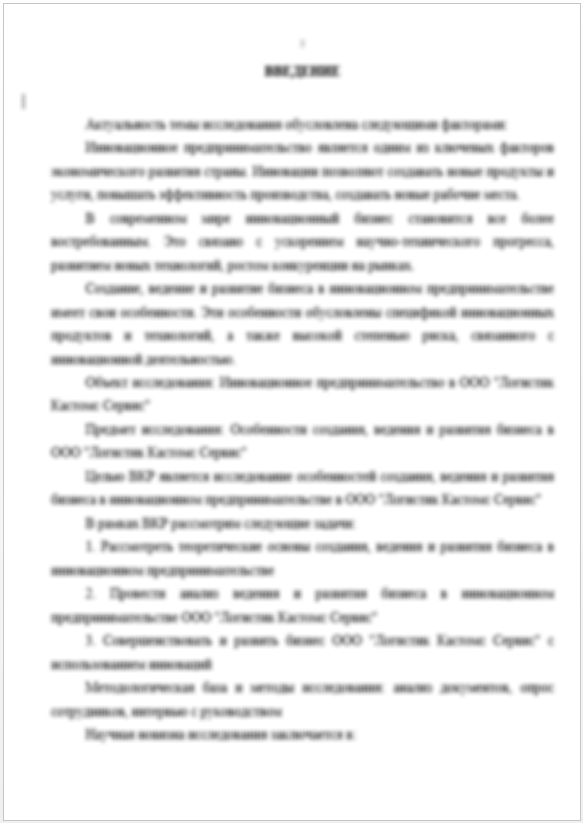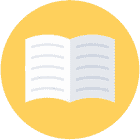У нас можно недорого заказать курсовую, контрольную, реферат или диплом

«Ответы на тест Условные предложения в английском языке» - Тест
- 28 страниц(ы)
Автор: navip
Содержание
№ ДЕ Количество вопросов
1 Первый тип условных предложений 25
2
Второй тип условных предложений 25
3 Третий тип условных предложений 25
4 Условные предложения с глаголом to wish 15
Введение
If you hear her singing, you will be impressed by her voice. – Если вы услышите, как она поет, на вас большое впечатление произведет ее голос.
When this museum is open, we will go for an excursion there. – Когда музей откроется, мы пойдем туда на экскурсию.
Некоторые авторы отдельным пунктом выделяют нулевой тип условных предложений. Этот тип описывает универсальные ситуации, в которых выполнение условия из придаточного предложения неизбежно повлечет за собой результат, указанный в главном предложении. Самый простой пример этого типа условных предложений – явления природы или законы физики. От первого типа он отличается тем, что в обоих частях предложения используется настоящее простое время (Present Simple).
If you heat ice, it melts. – Если нагревать лед, он тает.
When it rains, the streets are wet. – Если идет дождь, улицы мокрые.
The dog is happy when it sees its master. – Собака радуется, когда видит хозяина.
2. Второй тип условных предложений в английском языке выражает маловероятное условие, которое может относиться как к настоящему, так и к будущему времени. Для того чтобы образовать такой тип условного предложения, необходимо в придаточном предложении употребить глагол в форме простого или длительного прошедшего времени (Past Simple / Past Continuous), а в главном предложении создать сложную форму сослагательного наклонения из глаголов should / would и простогоинфинитива глагола без to. Если же в придаточном предложении мы имеем глагол to be, то его формой сослагательного наклонения будет were для всех лиц. Помимо глаголов should / would можно употреблять модальные глаголы could / might. Примеры:
If I were you, I would discuss this question with your boss. – Если бы я был на твоем месте, я бы обсудил этот вопрос с твоим начальником.
She would be happy if she were invited to the party. – Она была бы счастлива, если бы ее пригласили на вечеринку.
3. Третий тип условных предложений в английском языке характеризуется своим отношением к нереальным действиям. В этих предложениях нереальное условие относится к прошедшему времени, а значит, выполнению не подлежит никоим образом. При создании таких предложений нам понадобятся глаголы should / would (модальные could / might) с перфектным инфинитивом без to для главного предложения и глаголы в форме прошедшего совершенного времени (Past Perfect) в придаточном предложении. Примеры:
If you had warned me about the danger, I would not have participated in this competition. – Если бы ты предупредил меня об опасности, я бы не участвовал в этих соревнованиях (а соревнования уже прошли, и ничего изменить нельзя).
If I had known about your desease I would have visited you at the hospital. – Если бы я знал о твоей болезни, я бы навестил тебя в больнице (а я не знал, а ты уже выздоровел).
В отдельную группу условных предложений в английском языке выносят предложения с глаголом to wish, который в данном случае будет переводиться как жаль. Вот какие формы используются в этих условных предложениях:
1. если действие в придаточном предложении происходит одновременно с действием, выраженном в главном предложении, мы используем в придаточном предложении форму глагола простого прошедшего времени или were для всех лиц:
I wish she were next to me. – Жаль, что она сейчас не со мной.
I wish I could call her. – Жаль, что я не могу ей позвонить.
2. если действие придаточного предложения предшествует действию в главном предложении, то мы употребляем глагол в форме совершенного прошедшего времени:
I wish I had seen this yesterday. – Жаль, что я не видел этого вчера.
КОМПЬЮТЕРНЫЕ ОБУЧАЮЩИЕ ПРОГРАММЫ (КОПР №1)
Выдержка из текста работы
We shall stay at home if the weather_fine. (по 25 вопросов на вариант)
Is
Were
Was
They will go skiing if the weather_snowy during the week.
was
Were
Is
I shall not go outside in the evening if the weather_bad.
Be
Is
Was
The child will not read the book if he _it.
Do not like it
Will not like it
Does not like it
She will not marry the young man if he_ a nice fellow.
Will not be
Is not
Shall not be
If he _hard he’ll enter the University.
Work
Works
Will work
If they_hard they will pass exams without trouble.
Worked
Will work
Work
If he _good marks his teacher will be proud of him.
Gets
Will get
Get
If he _to graduate from college he will make a doctor.
Manages
Manage
Will manage
If the boy _clever at chess he will make a good chessplayer.
Was
Is
Will be
If he _her she will take care of his parents.
Marries
Marry
Will marry
If she_practical she will manage the house well.
Are
Is
Will be
They don’t know if he _to the conference next week.
Will go
Goes
Go
I am not sure if he _to you about this matter.
Talks
Will talk
Talk
I wonder if we _in touch after I move.
Stay
Shall stay
Stayed
If you_ you will touch the live wire.
Move
Will move
Moves
If you_ to find me you know where I will be.
Wants
Want
Will want
I am not sure if he_us for the hike.
Join
Joins
Will join
Everybody wonders if he _ .
Will cooperate
Cooperates
Cooperate
If I _this job I will expect a raise.
Takes
Take
Will take
If there isn’t much snow, we _ to go skiing.
Won’t be able
Aren’t be able
Isn’t be able
If you don’t watch your diet you_.
Will become sick
Become sick
Became sick
You’ll lose the money if you_ in a safe place.
Doesn’t put
Don’t put
Will not put
We won’t get there on time if you_reservations today.
Doesn’t make
Don’t make
Will not make
The cake won’t taste good if you_some more sugar.
Don’t add
Will not add
Didn’t add
If he had studied more, he_his examination. (по 25 вопросов на вариант)
Will have passed
Would have passed
Had passed
If I_you were waiting for me, I would have hurried to get there.
Knew
Had known
Have known
If you_me. I would have waited for you.
Had telephoned
Will telephone
Would have telephoned
If the weather_nice yesterday, we would have gone to the beach.
Was
Were
Had been
If yesterday it_a holiday, the stores would all have been closed.
Were
Was
Had been
If you_with us, you would have seen a good show.
Had gone
Went
Have gone
If she_me the truth, I would have been less angry.
Has told
had told
Told
If we_enough money, we would have bought a new car.
Had had
Have had
Had
If I_him, I would have given him your message.
Will see
Saw
Had seen
If he_in time, he would have caught the train.
Will leave
Left
Had left
If I_a taxi, I would not have missed him.
Had taken
Took
Will take
If I_about it yesterday, I could have brought the money with me.
Had known
Knew
Known
If Henry had studied harder, he_his examinations.
Will pass
Would have passed
Passed
If I had had your telephone number, I_you.
Will call
Had called
Would have called
If I had known about this last night, I_differently.
Have acted
Will have acted
Would have acted
If he had attended class more regularly, he_ better marks.
Will get
Had got
Would have got
If I had been in your place, I – to give him the money.
Would have refused
Would refuse
Had refused
If they had come on time, I_with them.
Would talk
Would have talked
Have talked
If they had invited me, I_with them.
Had met
Met
Would have met them
If I had had the money, I_that car.
Would buy
Will buy
Would have bought
If you had gone with us, you_her.
Would have met
Will meet
Have met
If I had had a car last summer, I_to California.
Have driven
Would have driven
Would drive
If it had not rained, we_on a picnic yesterday.
Would have gone
Had gone
Will go
If you had come earlier, you_a fine dinner.
Will have
Would have translated
Will have had
If I had had a dictionary, I_the article.
Have translated
Should have translated
Will have translated
If I knew English well, I_take this job. (По 25 вопросов на вариант)
Shall
Will
Should
If he were rich he_ buy a car.
Shall
Will
Would
If she asked me I – help her.
Shall
Will
Should
If I_ her better I should turn to her for help.
Know
Knew
Will know
If she_ him she would be happy.
Marries
Married
Will marry
If I_ her today I shall give her my book.
Meet
Shall meet
Meets
If she_ money she would buy this dress,
Has
Had
Will have
If you_English you would be able to help us.
Knew
Know
Will know
If I _you I shouldn’t do it.
Were
Was
Had been
If I_you, I should choose the profession of a doctor.
Am
Was
Were
If I_ Chinese I should go to China.
Know
Knew
Had known
If you studied hard, you_ your exams successfully.
Will pass
Would pass
Pass
We should invite him if he_ in Moscow now.
Was
Were
Is
Providing she told me about it, I_her.
Should believe
Will believe
Believe
If the plane left in time, it_ here in two hours.
Will arrive
Arrives
Would arrive
If it were not so cold, we_ .
Should walk
Walk
Walked
If he were in Moscow now, he_ you up.
Rings
Will ring
Would ring
If I were you, I_ to the South during the winter holidays.
Go
Will go
Should go
If I had free time I _it to reading,
Should devote
Shall devote
Devote
Providing I had money, I_ a radio-set.
Will buy
Should buy
Buy
My report would be ready tomorrow provided I_ all necessary materials.
Will have
Have
Had
He would finish his project if he_ ill.
Was not
Were not
Would not be
If I saw him, I_ to him.
Will be able to speak
Can speak
Could speak
Provided he went there alone, he_ the place.
Might not find
May not find
Will not find
I might answer the letter if I_ her address.
Know
Knew
Had known
I wish Sarah_ here now. (По 15 вопросов на вариант)
Was
Were
Is
I wish you_ to me now.
Shall listen
Listened
Listen
I wish I_ more money.
Had
Have
Has
I wish it_so cold today.
Was not
Were not
Is not
I wish the weather_ .
Change
Changed
Is changed
I wish you_all the time.
Did not complain
Does not complain
Not complain
I wish everything_ so expensive.
Were not
Was not
Is not
I wish it_raining.
Stopped
Stops
Stopping
I wish I_ a car.
Has
Had
Having
I wish you_ me.
Could believe
Can believe
Will can believe
I wish he_ with us now.
Was
Were
Had been
I wish she_ at the theatre yesterday.
Was
Were
Had been
I wish we_it before.
Knew
Had known
Have known
I wish I_English well.
Knew
Had known
Have known
I wished you _your camera yesterday.
Brought
Had brought
Were bringing
Заключение
We shall stay at home if the weather_fine. (по 25 вопросов на вариант)
+Is
Were
Was
They will go skiing if the weather_snowy during the week.
was
Were
+Is
I shall not go outside in the evening if the weather_bad.
Be
+ Is
Was
The child will not read the book if he _it.
Do not like it
Will not like it
+Does not like it
She will not marry the young man if he_ a nice fellow.
Will not be
+Is not
Shall not be
If he _hard he’ll enter the University.
Work
+Works
Will work
If they_hard they will pass exams without trouble.
Worked
Will work
+Work
If he _good marks his teacher will be proud of him.
+Gets
Will get
Get
If he _to graduate from college he will make a doctor.
+Manages
Manage
Will manage
If the boy _clever at chess he will make a good chessplayer.
Was
+Is
Will be
Примечания
Есть ответы на все вопросы Форматы: Word
| Тема: | «Ответы на тест Условные предложения в английском языке» | |
| Раздел: | Иностранные языки | |
| Тип: | Тест | |
| Страниц: | 28 | |
| Цена: | 300 руб. |
Закажите авторскую работу по вашему заданию.
- Цены ниже рыночных
- Удобный личный кабинет
- Необходимый уровень антиплагиата
- Прямое общение с исполнителем вашей работы
- Бесплатные доработки и консультации
- Минимальные сроки выполнения
Мы уже помогли 24535 студентам
Средний балл наших работ
- 4.89 из 5
написания вашей работы
Не подошла эта работа?
Воспользуйтесь поиском по базе из более чем 40000 работ
-
Дипломная работа:
79 страниц(ы) 2022 278
-
Дипломная работа:
Разработка словаря имен собственных, употребляемых в качестве нарицательных
132 страниц(ы) 2015 2381
-
Шпаргалка:
138 страниц(ы) 2014 1935
-
Контрольная работа:
Натюрморт из овощей и фруктов с драпировками, контрастными с ними по цвету и светлоте
11 страниц(ы) 2012 2682
-
Дипломная работа:
Особенности этикета международных событий на материале западного и восточного церемониала
74 страниц(ы) 2020 375
-
Дипломная работа:
Культурный облик провинциального города (на примере Уфы начала XX века)
71 страниц(ы) 2013 2851
-
Дипломная работа:
Лексическая объективация концептов «хитрость» и «коварство» в русских и английских текстах
96 страниц(ы) 2016 1014
-
Дипломная работа:
66 страниц(ы) 2022 306
-
Курсовая работа:
Способность прогнозировать будущее
42 страниц(ы) 2016 1058
-
ВКР:
64 страниц(ы) 2022 455





682 автора
помогают студентам
23 задания
за последние сутки
10 минут
среднее время отклика
-
Курсовая работа:
Фразовые глаголы в английском языке
33 страниц(ы) -
ВКР:
Обучение особенностям гастрономических заимствований в английском языке
62 страниц(ы) -
Дипломная работа:
Интернационализмы в английском языке и их изучение в средней общеобразовательной организации
67 страниц(ы) -
Дипломная работа:
Категория времени в английском языке и видовременные формы английского глагола на уроке в школе
61 страниц(ы)
